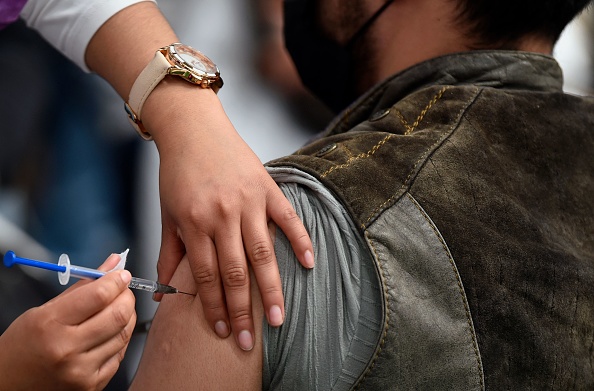Everyone is still at risk of contracting COVID-19 amid the ongoing pandemic. But young people may not need another vaccine dose for extended protection.
Experts recently weighed in on the vaccination situation in the U.S. and how the current data in healthcare systems could mold the country’s future vaccination plan.
Based on data from three large healthcare systems, young people have not become severely ill due to SARS-CoV-2, and they haven’t been filling up hospitals even though only a small percentage of people below 65 have gotten the new boosters, CNN reported.
“Even if they’re not getting boosted, young, healthy people are not getting super sick from this. We’re not seeing it. It’s not happening,” Dr. Mangala Narasimhan, a senior vice president at Northwell Health, the largest healthcare provider in New York state, told the news outlet.
“We’re not surprised, and we’re grateful [and] happy to see that hospitals aren’t filling up. But we still see occasionally healthy younger adults end up in the hospital. And to me, it’s a no-brainer if I can take five minutes, pop into my local pharmacy and get a shot,” added Dr. Ruth Link-Gelles, a senior epidemiologist at the Centers for Disease Control and Prevention (CDC) and lead author of several studies on the booster’s effectiveness.
Earlier in the week, the CDC released data analyzing death rates and vaccination status from September through December. The public health agency found that vaccinated people, including those who received the bivalent boosters, were better protected against the novel coronavirus than the unvaccinated.
The CDC maintained in its report that since COVID-19 vaccine effectiveness wanes over time, updated boosters enhance protection against the virus and its emerging variants and subvariants. The agency then recommended everyone stay up to date with their vaccines to get the best protection against severe Covid.
“There are people under 65 that are still dying of Covid, (and) any death in an unvaccinated or under-vaccinated person is potentially preventable had that person gotten the booster,” Link-Gelles said.
Experts admitted to CNN that even though the booster doses are important for the elderly and immunocompromised individuals, for younger, healthy people, the decision to get the additional shots is somewhat murky.
“For young people, it’s a matter of choice. There are different personalities and risk perceptions. I won’t say it’s a major mistake for a person who’s 20-something not to get the booster,” said Dr. Nadav Davidovitch, the head of the School of Public Health at the Ben-Gurion University of the Negev in Israel, as quoted by CNN.
“Booster dosing is probably best reserved for the people most likely to need protection against severe disease – specifically, older adults, people with multiple coexisting conditions that put them at high risk for serious illness, and those who are immunocompromised,” Dr. Paul Offit, a pediatric infectious disease specialist at the University of Pennsylvania, wrote in a report published in the New England Journal of Medicine last month.
















